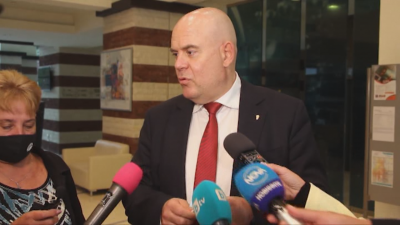Skip to main content
Automakers, suppliers and dealers need guidance on what vehicles will be eligible under the law’s “foreign entity of concern” provision, executives said.
September 12, 2023 04:04 PM
KPT IMAGES
Automotive News staff reporter Audrey LaForest moderates a panel on making sense of the Inflation Reduction Act. Joining her on the stage is Mohammed Abraham of Bosch, Deeana Ahmed of Our Next Energy, Dan Bowerson of the Alliance for Automotive Innovation, and Jennifer Safavian of Autos Drive America.
DETROIT — The auto industry urgently needs guidance from the U.S. Treasury Department on which cars will be eligible for electric vehicle tax credits under the Inflation Reduction Act‘s “foreign entity of concern” rules, executives said.
“We’ve been working very diligently to try to determine exactly what the rules are,” said Jennifer Safavian, CEO of the industry trade association Autos Drive America, at the Automotive News Congress today.
“Treasury has been a little slow in putting out some of the guidance, and we’re still waiting for [clarity] on what exactly they need to do to get vehicles qualified.”
The Treasury Department said last week it plans to issue guidance by Dec. 31 on key provisions related to the Inflation Reduction Act’s EV tax credits including rules laid out under Section 30D.
That section includes a provision blocking tax credits for new EVs that contain batteries from a “foreign entity of concern” such as China beginning in 2024 and critical minerals from producers controlled by such an entity starting in 2025.
It remains unclear how the federal government plans to define and enforce the provision.
The lack of guidance has been a significant concern for manufacturers looking to make sure their vehicles qualify for the tax credits, and for dealers looking to sell those vehicles.
“Manufacturers and suppliers need to have clear and concise guidance to know what countries are included in that, what components are included and if there are going to be any threshold that would allow a trace amount of a mineral to still qualify,” said Dan Bowerson, senior director of energy and environment at the Alliance for Automotive Innovation trade association.
Safavian said the Treasury Department has yet to provide insight into how it will enforce the rules. She said it is unclear, for example, if a vehicle containing lithium sourced from a company in Australia qualifies for the tax credit if that company has received investments from Chinese firms.
“It’s important to recognize that there are Chinese investments all over the place,” she said. “There’s a lot that goes into this definition. The sooner we have this information, the better for all.”
Making decisions while waiting for guidance “can be challenging” for manufacturers, said Deeana Ahmed, chief strategy officer at Michigan startup battery manufacturer Our Next Energy.
Still, the law’s incentives for manufacturers to build up domestic capacity and local supply chains have helped put U.S. companies on equal footing with those in other countries, she said.
“It accelerates our ability to scale manufacturing capacity,” Ahmed said. “It’s an equalizer. It levels the playing field and allows American manufacturing to come online without a hindrance of having to compete on price while scaling the supply chain.”
Panelists said the law has sparked domestic investments from automakers and suppliers. And uncertainty about how it might be altered — or potentially repealed — after the 2024 presidential election could push companies to move forward with plans sooner, Bowerson said.
Mohammed Abraham, North American president of chassis systems control and automotive steering at supplier giant Robert Bosch, said potential repeal of the Inflation Reduction Act would be detrimental to the economy and U.S. manufacturing, making it more likely the law will remain on the books.
“The train has already left the station, and we will just enjoy the modifications,” Abraham said.
Note: This article have been indexed to our site. We do not claim legitimacy, ownership or copyright of any of the content above. To see the article at original source Click Here
















